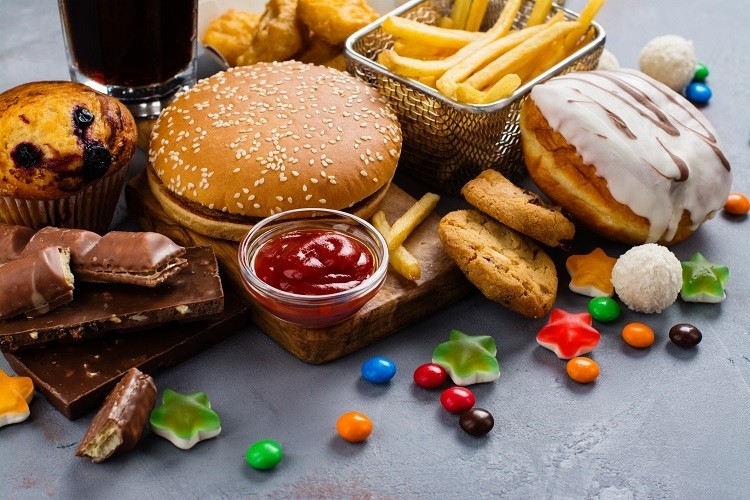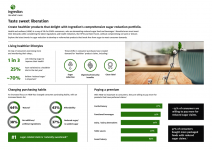Reformulate or be taxed: Campaigners call for levy on ‘excessive calories’ in unhealthy foods

Campaign groups Action on Sugar and Action on Salt have called on the UK government to implement an energy density tax, whereby businesses making unhealthy foods that contain excessive calories would be liable to pay a levy.
“The specifics will require further consultation with HM Treasury but would follow a similar tiered approach to the successful soft drinks levy which has so far generated £340m of income directly from manufacturers,” campaign lead at Action on Sugar Dr Kawther Hashem told FoodNavigator.
Beyond boosting government income, the UK’s Soft Drinks Industry Levy (SDIL) – which came into force last year – has been credited with encouraging reformulation among soft drinks manufacturers to reduce sugar content in their drinks.
The levy, which adds a charge of up to 24p per litre to sugary drinks depending on their sugar content, is also believed to have encouraged NPD in the sugar-free drinks sector.
Reformulation or ‘shrinkification’?
The main objective of an energy density tax would be to encourage reformulation and reduce excessive calories in processed unhealthy foods, Dr Hashem told this publication.
However, the campaign lead acknowledged that reformulation – without negatively impacting taste, texture or mouthfeel – can be a challenge for certain foodstuffs.
“It depends on the product,” she said. “However, reformulation is the main aim and, if impossible, then reduce portion size.”
Taste hurdles can be overcome by adopting a ‘gradual’ approach to reformulation, Dr Hashem suggested, which gives consumers more time to adapt. “Huge reductions have been made in the salt content of foods – people’s tastes have adjusted to them and they’re still eating the same types of food.”
Further, where specific reformulation issues consistently pose challenges, Dr Hashem said state-funded assistance could help progress the cause. “If some issues are consistent across the industry then perhaps they should [help fun reformulation R&D]. We would like to see more research into using healthy ingredients as a substitute.”
For products that ‘absolutely cannot be reformulated’, the campaign lead suggested brands pass the levy cost onto the consumer. “[This] can help reduce excessive intake,” she told this publication.
Tackling the obesity epidemic
The campaign groups insist that all funds raised from an excessive calorie levy be invested in combating childhood obesity – an epidemic that continues to grow around the world.
When compared to those with ideal body weights, overweight and obese children consume between approximately 140 and 500 excess calories every day. The campaigners therefore suggest that reducing the amount of calories in unhealthy foods could make a significant difference.
Further, as fat is a bigger contributor to calories in the diet than sugar, it is ‘essential’ that manufacturers limit its presence in finished food products, the continue.
“Manufacturers are simply not doing enough. If the government is really committed to helping the less well off, they need to tackle the food industry and a feasibility study needs to be undertaken without delay.
“An ‘excess calorie levy’ would encourage manufacturers to improve the nutritional quality of their unhealthy foods and most importantly, tackle the thousands who suffer the consequences of a poor diet, leading obesity, Type 2 diabetes and cancer.” – Katharine Jenner, campaign director of Action on Sugar and Action on Salt
Other nations to have taken steps to reduce excess calories in food and beverages include Mexico and Hungary.
In Mexico, a sugary drink tax and high caloric density tax for foods were implemented in 2014. Products affected include chips and snacks, confectionery, chocolate based products, and nut butters.
According to follow-up data, low socioeconomic status (SES) households purchased on average 10.2% less taxed foods than expected, and medium SES purchased 5.8% less taxed foods.
In Hungary, the government passed a ‘publish health tax’ related to salt, sugar and caffeine content for processed food and drink products in 2011. Again, the lowest income groups were the most responsive to the introduction of the tax. Consumed quantities of processed food has since decreased by 3.4%.
While Action on Sugar and Action on Salt is recommending a more tiered approach to encourage reformulation, Dr Hashem said Mexico and Hungary’s initiatives provide “evidence that a tax on food products can work”.

























